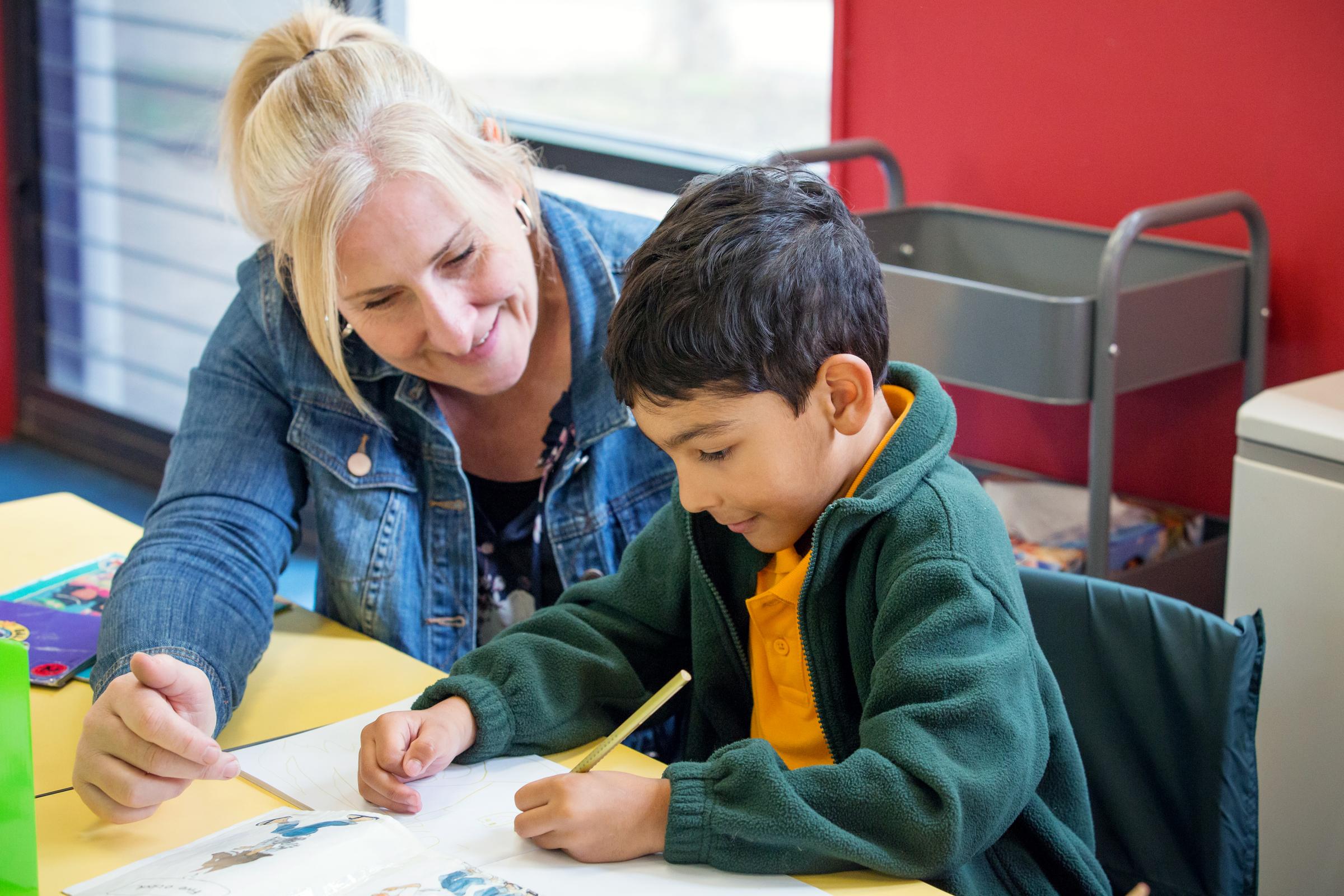Teaching and Learning
Mrs Peta Phillips - Acting Assistant Principal

Teaching and Learning
Mrs Peta Phillips - Acting Assistant Principal
Over the last few newsletters, I have been providing top tips for supporting children at home across all curriculum areas. This newsletter is focused on Writing.
Encouraging children to hone their writing skills can be both a fun and educational endeavour, however many parents and carers I speak to admit it can be the most challenging too. Here are some great tips to inspire your children, ensuring they do not only know how to practice writing skills at home but also find joy and satisfaction in the process.


Start writing early: Encourage all forms of writing from a young age. It’s okay if stories don’t get finished – the key is regular practice and creativity. If your child is struggling to start writing, suggest some creative ways they can start – do they want a new toy? Suggest they write a short paragraph on why they want it and how it’s going to bring them joy!
Foster a love for reading: Share books together. Reading for pleasure can spark your child’s imagination and show them the value of stories.
Write about what you know: If creating characters is proving to be challenging, suggest
writing about familiar people or even their favourite characters from media. It’s a great place to start and practice writing skills, as well as storytelling!
Praise generously: Celebrate every achievement, big or small. Tailor your encouragement to their individual efforts and progress. Which brings us to the next step!
Use rewards effectively: Clearly define rewards for their writing efforts. This can help motivate them to concentrate and do their best.
Don’t stress over grammar (at first!): Focus on the joy of expressing ideas creatively. Worrying too much about grammar can stifle their imagination. If your child is struggling with grammar however, speak to your child's teacher on how you can help with this.
Keep writing sessions short: Aim for brief, frequent writing activities. Knowing there’s a set time can motivate them to focus and engage more with their writing, encouraging them to practice their writing skills effectively.


Now we’ve talked about writing techniques and tips for writing at home, here are some practical and fun writing activities to put them into practice!
Write a book or film review
Why not try writing a review of a great book, film or TV programme you have read/watched together recently? Learning to write in lots of different formats and styles will put them in good stead for school.
Describe a picture in words
The wonderful thing about this activity is that there are so many resources you can use that are lying around the house! Whether it’s a photo of family members, a picture in a magazine or a painting on the wall – ask your child to describe it in words. They could even write a story based on the image.
Describe everyday objects
Point to objects around the house and experiment by getting them to describe them as creatively as possible. This can be great practice for using alliteration, metaphors and similes.
Write a diary or journal
Writing a personal diary not only helps to get children into the habit of writing, but is also a great way of letting out emotions and making sense of their world. The act of writing down their thoughts, feelings and observations each day could help them get more comfortable with writing, and connect them with their own ideas.
Create an instruction manual
Maybe it’s working the TV or giving instructions on how to bake a cake – mix up their writing practice with different formats.
Pick a word of the week
As a family, choose a word to focus on each week. Then everyone can have a go with using it in their writing in increasingly creative ways. The more peculiar the word – the funnier this activity can be!
Write a poem, song or a play
For little creatives, or for children who view writing as ‘boring’, writing practice can be disguised in the form of creating a poem, song or play. The motivation can be performing their piece once it’s finished!
Write letters
Letter writing is an important skill. If they are passionate about a social issue, you could encourage them to write a powerful letter to their MP. Or, you could try setting them up with a pen pal in another country for a culture exchange. If that’s out of reach, writing letters to friends, family or even imaginary strangers works too.
Write together
Why not try writing a story together – one paragraph at a time. This can also be a fun game for them to play with friends, especially when the story escalates into a wild and wacky adventure! Think the consequences game but with writing instead of pictures.
Everyday writing
Task your child with being your ‘writer’ for the day. Be it shopping lists, reminders or emails – giving them a sense of responsibility can help to motivate them to write.
Remember, that writing is supposed to be fun! If you’re looking for writing activities outside the home, consider participating in events like the World Book Day, which celebrates authors and readers alike!
I hope you have found these ideas useful, writing is a passion of mine, and I am always open to reading all students writing that come my way.
A huge thank you to our staff for their diligence and preparation in the delivery of the annual NAPLAN assessments. I am so proud of our Year 3 and 5 students for the positive approach they took to all tasks and the effort they displayed. Thank you also to our families for assisting your children in getting ready for the NAPLAN days.
Peta Phillips
Acting Assistant Principal

